- Home
- Melissa de la Cruz
Girls Who Like Boys Who Like Boys Page 9
Girls Who Like Boys Who Like Boys Read online
Page 9
To me, it has never been the same.
MAN’S BEST FRIEND
David Ebershoff
Several years ago I got a puppy. When I brought her home she was ten weeks old, loose skinned and gangly, the color of cinnamon, with ears as big as her face. I named her Elektra. That’s her real name. I’m telling you that because I’ve changed the other names in this story, including the names of the dogs.
I got Elektra for the usual reasons a single man gets a dog: companionship, affection, a living creature to care for. I wasn’t really single; I was on a string of boyfriends whom over a period of three years I would end up treating shabbily—behavior I’m still ashamed of today. I chose a vizsla because—this is going to make me sound vain—they are lean and strong, a frame I had always aspired to at the gym but could never quite put into shape. One more thing about Elektra before I move on to Miriam—her name comes from the Strauss opera. Hence the Germanic spelling.
When I picked up Elektra at the breeder’s I clasped a tiny pink collar around her throat and took her for her first walk. My best friend, Leo, and my boyfriend, Paul, were with me that day. By the end of this story I’ll have gone through half a dozen boyfriends and my best friend will be off in rehab. That too leads me to Miriam.
Once I got Elektra back to my apartment, she hurried across the living room, turned around, looked into my eyes, and peed. That afternoon she went on to pee on every carpet in the apartment and in the elevator as I walked her to the curb. I put down paper, but she merely shredded it and then peed next to it. Within a few hours, she had slashed a hole in my sofa, pulled the toilet paper off the roll, and thrown up. I had read several books on how to train a puppy, but it was clear I needed live help. That evening, when I was out making a run to the deli for more paper towels, I saw a woman walking a stately golden with a plumed tail. The dog sat when commanded, walked calmly on his leash, and, most impressively, took an appropriate leak on a trash bin. A bit desperately, I explained my situation to the woman. Her face warmed up: “You have to call Miriam.”
When I got back to the apartment I called the number the woman had given me. “Is Miriam there?”
“Who’s this?”
I told her about Elektra.
“A vizsla, huh? Well, I’d have to meet her first.”
I told her that was fine.
“And there’d be an interview with you.”
“An interview?”
“I’m not going to walk just anybody’s dog.”
I asked her when she could come. She stalled and made a noise like flipping pages in an appointment book. “How’s tomorrow?”
I told her that would be fine and gave her the address. I don’t remember if Paul was there when I made the call. He must have been, because I remember he stayed over on Elektra’s first night. I set up her crate in my office, but when she started whimpering late that night, I got out of bed. I went to stroke her and ended up falling asleep in her crate, my legs sticking out the door. Paul and I lasted about three more months.
At the time, Leo had a dog, a clever white twelve-pounder he insisted was a pure-breed poodle, but really was a mutt. Over the phone, Leo gave advice, his point of reference being his own dog, Adam. “It’s cruel to put her in a cage.”
“But all the books say—”
“Adam would never go in a cage.”
“She doesn’t think of it as a cage. To her, it’s her house.”
“Adam would rather die than go in a cage.” Adam was a typical city dog: little and spoiled. On the line, I could hear Leo exhale a Marlboro. “By the way, how’s Paul?” For the next several years, my friendship with Leo would be some variation of this conversation. It happened mostly on the telephone, revolved around our dogs, and then would meander into a discussion of my current boyfriend (after Paul, there was Phillip, then Jeremy, followed by Jonathan, Bill, and Jim) and Leo’s obsession with one married man or another. What I didn’t know, but now am aware of, was that Leo was almost always drunk when we were on the phone, spiking his Starbucks with minibottles of Smirnov, from six in the morning until he passed out. Sometimes I heard a slur in his voice and asked if he was drinking. He’d deny it with such irritation and a sniff of offense that I believed him. I mention this only because later—after Miriam and I had, for lack of a better phrase, broken up—did I figure out the subtext of this period in my life: that using had nearly destroyed one friendship, possibly two.
When I opened the door Miriam brushed by me. “Come on in,” I squeaked as she moseyed around the living room. She shrugged at a picture on the wall, surveyed the sofa with a raised eyebrow, and went to the window to dismiss the view. “How long have you lived here?”
“Three years.”
“Not bad.” She looked down to the Oriental rug my mother had given me. “This rug’s going to have to go.”
“Why?”
“Where’s the puppy?”
I went into the office, unlatched the crate door, and released Elektra. She ran through my legs into the living room, squatted at Miriam’s feet, and peed on the rug. “Vizslas,” Miriam said. “They’re the worst.”
I fluttered about with paper towels and a cleaning product called Ur’Ine Trouble! While I was mopping up the puddle, Miriam took a seat. She was small and slender, in her late forties, with pretty, dark hair pulled back. Her voice had gone gravelly from cigarettes. “I’m very picky about my dogs,” she began.
“That’s good,” I said.
She explained she had a longtime boyfriend who had made a lot of money repping jeans. “I don’t need to be doing this.”
“Of course not.”
“This is about a relationship.”
I nodded in agreement.
“We’re in a relationship together with your dog.”
I was so eager for assistance and blinded by my limitations that I let the interview continue. We went over the details of the walking schedule, Miriam’s fees, her right to a glass of water or a soda from the fridge. A lot of what we talked about was what you might expect in such a situation—except that she was the one asking the questions and stating the demands. I know that makes me sound like a doormat, but one of the reasons I let her go on like that was that I knew nothing about dogs, while she was, as she put it, “a professional.”
“How’d you come up with a name like Elektra?”
I told her about the opera and that in Greek mythology Elektra remained loyal to her father after everyone else abandoned his memory.
Miriam listened to this, frowned, and said, “I see.”
Then for the first time she softened up. “Next to goldens, vizslas are my favorites. You know, I grew up with a vizsla. Ruby. What a nut job, that one. But I loved her. Did you know she was nine years old and running around like a mental case until the day she died? Someone rang the doorbell and Ruby jumped up and had an aneurysm. Dropped dead right there in the front hall. The poor girl.”
This was my first glimpse into Miriam’s sentimental side, which would go on to reveal itself in abundance over the next few years. Miriam was a dog nut. She preferred animals to humans, spoke to anything with four legs, and could simultaneously curse a fellow human being for “getting in my way” while calling terms of an endearment to a dog for taking a poop.
Miriam rubbed Elektra’s ears and kissed her snout. The dog responded by rolling over and spreading her hind legs and showing us her, as Miriam would call them, “lady parts.” “You got yourself quite a lady,” Miriam cackled. “What a whore!” Elektra has surprisingly large genitalia, a trait Miriam immediately delighted in by declaring, “It looks like a Hershey’s Kiss!”
She got on her hands and knees and started kissing Elektra’s belly. For a moment I feared she might go down on my dog.
When Miriam was back in the chair, we talked some more about walking and training. “This city’s full of lunatics,” she concluded.
I took this to mean I had passed the interview. I don’t remember if it was that first day, or
not long after, when she said, “By the way, I have lots of gay clients. The gay dogs love me. There’s Tiny the great dane. His daddies are gay. And Lilly the shar-pei, her daddies are gay, an Asian and his older lover. And Rita the bull terrier, her daddies are gay, too. And I mean really gay. You should see their apartment. I call it the Palace of the Penis. In their living room they have a giant plaster of Paris cock.”
I laughed about this, and probably said something like, “Oh, how tacky.” I don’t know why it didn’t occur to me to say: Is that true?
By the time Elektra was spayed, I was seeing Phillip. We were set up on a blind date by a coworker of mine. We met for drinks at a bar in Grand Central. About twenty minutes into the conversation, we realized we each had a dog. His was a sturdy black mutt, built like a bolster, propped up on four tiny legs. Her name was Elizabeth. A few days later, when they met for the first time, Elektra chased Elizabeth around the apartment and turned over her water bowl. “That’s because she’s a bitch,” Miriam said on the phone. “You got yourself a real piece of work. So you like this guy?”
I said I did.
“I’m really happy for you. You deserve it. He sounds like a really nice man.” She would go on to say this each time I started dating someone new. My relationship with Miriam had quickly evolved into almost nightly telephone conversations, when she would update me on Elektra’s day: “Did I tell you what your daughter did today?” I heard her fumbling for cigarettes. “We were crossing the street, dashing to make a light, and she decided she had to pee right in the middle of the crosswalk. She kept going and going—it was like a river!—and the light changed and there she was, squatting. Such a slut. Even the cops were laughing. I love her, the big dope. Oh, there’s my other line, hold on.” She put me on hold, and I waited. Sometimes she kept me waiting for four or five minutes. Sometimes longer. Only after a few years did I start hanging up.
“I like Phillip,” Leo assessed on the telephone, although it took months to get him out of the house to actually meet him. “He’s the nicest guy you’ve ever dated.” Leo and I spoke on the phone every night. Often he phoned from his bathtub, where he would soak for hours with the water trickling, his neck resting on an inflatable cushion.
“How’s Elektra treating Elizabeth?” he would ask.
“The same.”
“I’m sorry, your dog’s insane.”
“She’s not insane. She’s a vizsla.”
“That’s what it is.”
“What?”
“Elektra thinks she’s a dog.”
“She is a dog.”
Leo tsk-tsked liked I’d said something pathetic. “Not Adam. Adam thinks he’s a person.”
Phillip and I dated for about nine months. We broke up for my typical reasons—he wanted more and I wanted less. One night he summoned the courage to tell me how he truly felt: “It’s like you’re not really here with me, and I want you here.” He was right of course but I didn’t have the perspective to see what he meant. I didn’t know I had passed out all my affection to Miriam, to Leo, and to my dog. We broke up amicably enough. I think the dogs missed each other for a few weeks.
“Oh well,” said Miriam. “Another one bites the dust. At least you’ll always have your girl.”
“He wasn’t right for you,” Leo said on the phone. “Too domestic.”
“What’s that supposed to mean?”
I heard the deep but quiet exhale of a man who smokes four to five packs a day and lies about it. “How should I put this? You’re not a nester.”
“I’m not?”
“Not yet you aren’t.”
But hadn’t I decided to get a dog to encourage my nesting ways?
“Yeah, right.”
When I repeated this conversation to Miriam she said, “Well, you know, he’s got a point.”
Not long after I started dating Jeremy. It was an intense, summer-long relationship that ended badly, with the door literally hitting me in the ass as I left his apartment the final night. “I never liked him,” Leo declared.
“That’s because he was smart and he could see right through you,” I said.
“He was smart, but not that smart.”
But he was that smart. My relationship with Jeremy was so brief because he could see right through me: “You’re so not available,” he said bitterly, before throwing me out.
As for Miriam, I remember her saying something like, “Who needs him?” But to tell the truth, I can’t be certain which guy she was referring to.
I met Jonathan a few days after September 11, when we were all reassessing our lives. We talked about how we were like a couple in London in 1940, falling in love while the smoke billowed over the city. It was a romantic notion for a very unromantic time, and it didn’t last long. Fortunately we had something else in common: our dogs. Jonathan had a cockapoo named Muscat, an Arabic name that felt weirdly apt.
“If you ask me,” said Leo, “you need someone with a dog.”
“Why’s that?”
“Because Elektra’s always going to be the most important person in your life.”
“That’s not true.”
“Darling. Yes, it is.”
When I’d hang up from talking to Leo, often there was voice mail from Miriam. I’d call her back and she’d tell me about Elektra’s day. “I took her to the bank and the park.” While she was updating me, it was impossible not to think: Miriam clearly loves my dog. How lucky is that? “She was a very good girl,” she’d say.
“Thank you.”
“My mother was an evil person.”
Over time Miriam’s speech became filled with more and more of these non sequiturs. “Elektra had two pees and a poop,” she’d report, immediately following with: “Steve’s new beach house must’ve cost him a pretty penny. You should see the pool! Oh I’m telling you.” Never mind that I had no idea who Steve was.
Or it would go something like this:
“I’m telling you, you’ve got yourself a real piece of work.”
“Why, what’d she do?”
“I don’t know why they think I would go all the way to the South Bronx for fifteen dollars.”
Over time, I learned to ignore it. If I were to follow her lead, she’d have me on the phone for forty-five minutes telling me about the paint job of people I’d never heard of before and would never hear of again.
Why’d I put up with it? She adored my dog. She considered herself Elektra’s nanny. She walked her, played with her, fed her, checked her water bowl, brushed her, gave her cookies, taught her tricks, took pictures of her, and cared for her exactly as you hope someone will care for your dog. She never let me, or Elektra, down. I suppose it’s worth mentioning that during this period, when I had boyfriend after boyfriend, and a best friend a subway ride away, Miriam was the only person who had a key to my apartment. Sometimes I imagined her in there after a walk: setting out a bowl of water for Elektra and glancing at my kitchen shelves. I know she looked around because occasionally she would mention a book on the table or a ticket stub in the key dish. She wasn’t snooping: She was being a friend.
“So this Jonathan guy, is he the one?” she asked.
I don’t remember what I said.
Sorry, but I have to backtrack: A week before I met Jonathan, Leo’s dog died of cancer. I was in Australia and missed the whole event. I know Leo didn’t forgive me for being out of touch during this time. He’s right: I didn’t make the best effort to phone. But what I’m even more sorry about is how I misjudged the tailspin it would send him into. After Adam’s death, Leo slipped into a deep, lonely mourning. I called, but not enough, and I underestimated his acute loss. To make matters worse: September 11 consumed our sympathy and grief. After that terrible day there was little pity for the man whose dog had recently died. I can’t say with any certainty that I ever saw Leo sober again after this, not until he checked into rehab a few years later.
Jonathan and I lasted until the following spring, when he broke up with me over
sushi. “You can’t give me what I want,” he said. The pattern was becoming so apparent that I promised myself I would fix some things. I was embarrassed about my selfish behavior then and I’m even more embarrassed about it now.
“It’s them, not you,” said Miriam. By this point, I knew she was wrong. But that didn’t mean I was capable of breaking old habits. I swore off dating. No dates, no phone numbers, nothing until I figured out what I was looking for. Maybe a hookup or two (or three) every now and then, but nothing that could end up hurting someone else. That’s how I met Bill; we lasted seven months. We broke up over sushi as well. His blue eyes filled with tears. I’d done it again.
When I told Leo the news, he only said, “I’m not surprised.”
“Oh well,” said Miriam. “You’ve always got Elektra and me.”
I decided to move. A new apartment in a new neighborhood seemed like a good way to force change into my life. I didn’t tell Miriam until I had already bought a new place. My new neighborhood was downtown, too far for her to walk Elektra. I wasn’t moving away from Miriam. It was more like I was moving away from myself. An astute observer might ask: moving away or running away? Probably both. And my draining friendships with both Leo and Miriam probably had something to do with it.
When I told her she began to cry. “You’re moving downtown? But, but, but—” She couldn’t finish. Eventually she managed, “You can’t move. She’s my baby.”
We made promises of doggy visits and staying in touch, but about a year passed before I saw her again. I hired another dog walker, a guy named Rick who worked in a fish warehouse from three in the morning until ten, then walked dogs in the afternoon. A friend recommended him, I met him once, and that was it. He came, he took Elektra out, and on Fridays I left cash on the counter. Our relationship was so distant that one night when I was out walking Elektra she lunged across the street at a handsome man in a blue fleece vest. I apologized to the stranger but he said, “Oh hi, Elektra.” Elektra clearly loved her dog walker, even if I didn’t know his face. In the meantime, I started seeing Jim, an actor-waiter who had a cat named Oscar. Jim and I would last a year, and although it ended it wasn’t a bad ending. With him, I began to open up. With him, I began to be less selfish. (It would take one more guy before I finally gave in and fell in love.)

 Gates of Paradise
Gates of Paradise Someone to Love
Someone to Love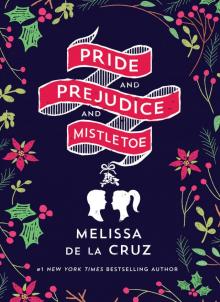 Pride and Prejudice and Mistletoe
Pride and Prejudice and Mistletoe Serpent's Kiss
Serpent's Kiss The Au Pairs
The Au Pairs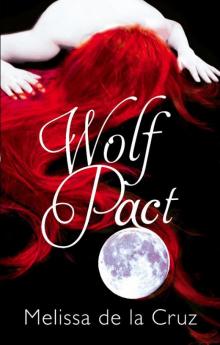 Wolf Pact
Wolf Pact Witches 101: A Witches of East End Primer
Witches 101: A Witches of East End Primer Jealous?
Jealous?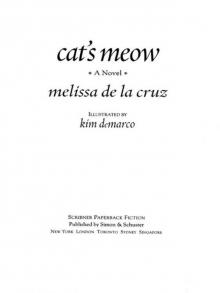 Cat's Meow
Cat's Meow Misguided Angel
Misguided Angel Birthday Vicious
Birthday Vicious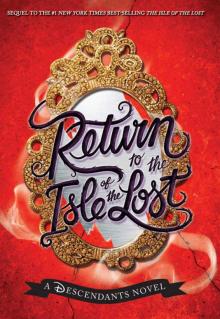 Return to the Isle of the Lost
Return to the Isle of the Lost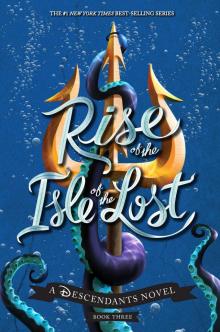 Rise of the Isle of the Lost
Rise of the Isle of the Lost Angels on Sunset Boulevard
Angels on Sunset Boulevard Double Eclipse
Double Eclipse Blue Bloods
Blue Bloods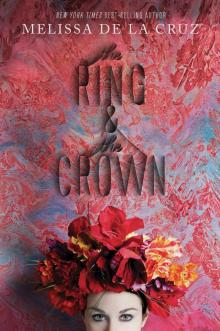 The Ring and the Crown
The Ring and the Crown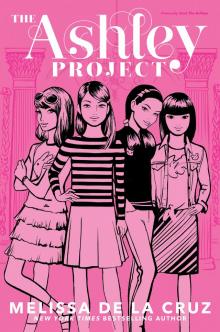 The Ashleys
The Ashleys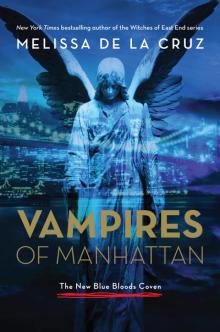 Les vampires de Manhattan
Les vampires de Manhattan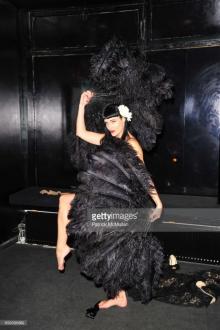 The Van Alen Legacy
The Van Alen Legacy Sun-Kissed
Sun-Kissed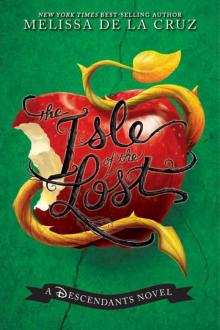 The Isle of the Lost
The Isle of the Lost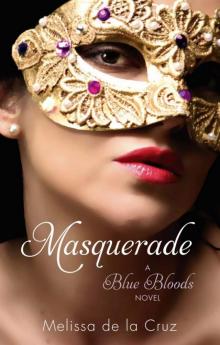 Masquerade
Masquerade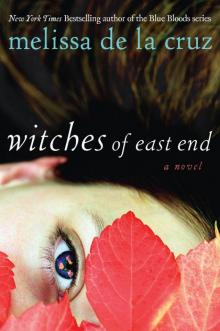 Witches of East End
Witches of East End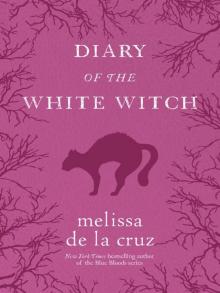 Diary of the White Witch
Diary of the White Witch Crazy Hot
Crazy Hot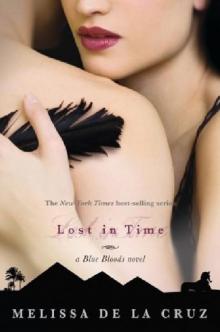 Lost in Time
Lost in Time White Nights: A Vampires of Manhattan Novel
White Nights: A Vampires of Manhattan Novel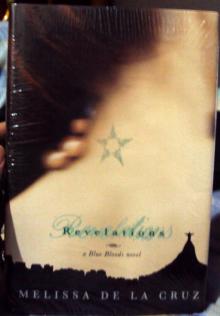 Revelations
Revelations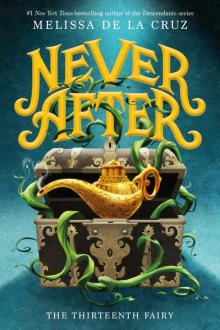 The Thirteenth Fairy
The Thirteenth Fairy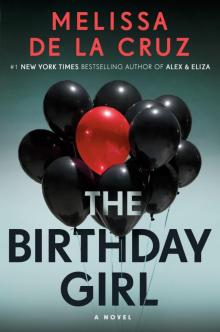 The Birthday Girl
The Birthday Girl Lip Gloss Jungle
Lip Gloss Jungle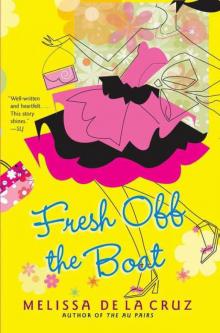 Fresh Off the Boat
Fresh Off the Boat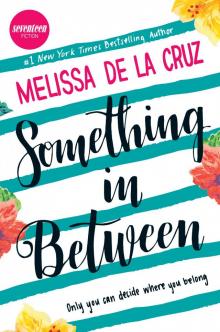 Something in Between
Something in Between Winds of Salem
Winds of Salem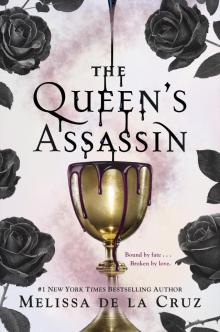 The Queen's Assassin
The Queen's Assassin Love & War
Love & War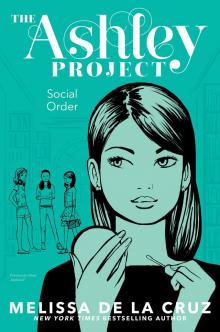 Social Order
Social Order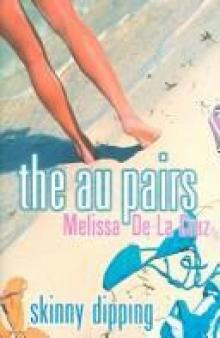 Skinny Dipping
Skinny Dipping 29 Dates
29 Dates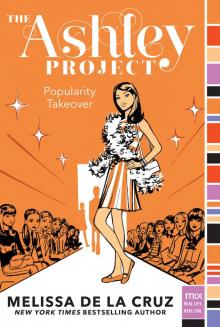 Popularity Takeover
Popularity Takeover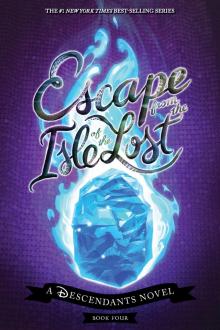 Escape from the Isle of the Lost
Escape from the Isle of the Lost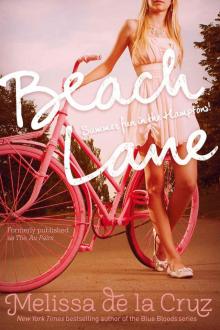 Beach Lane
Beach Lane Bloody Valentine
Bloody Valentine All for One
All for One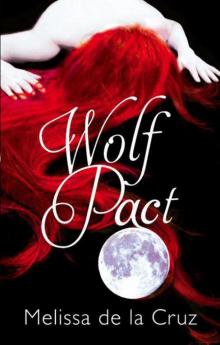 Wolf Pact: A Wolf Pact Novel
Wolf Pact: A Wolf Pact Novel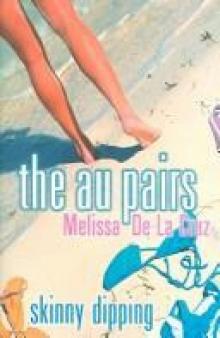 The au pairs skinny-dipping
The au pairs skinny-dipping Lip Gloss Jungle (Ashleys)
Lip Gloss Jungle (Ashleys) Crazy Hot (Au Pairs)
Crazy Hot (Au Pairs)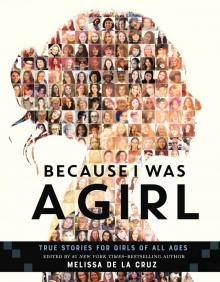 Because I Was a Girl
Because I Was a Girl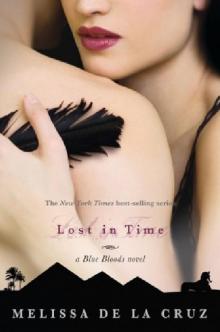 Blue Bloods 6 - Lost in Time
Blue Bloods 6 - Lost in Time Sun-kissed (Au Pairs, The)
Sun-kissed (Au Pairs, The) Bloody Valentine bb-6
Bloody Valentine bb-6 Golden
Golden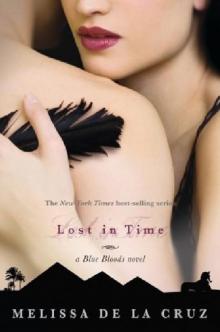 Lost in Time_A Blue Bloods Novella
Lost in Time_A Blue Bloods Novella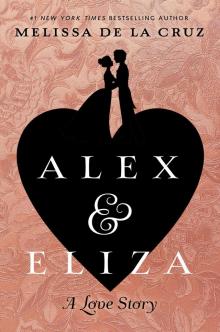 Alex and Eliza--A Love Story
Alex and Eliza--A Love Story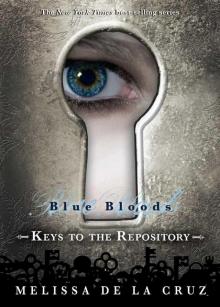 Blue Bloods: Keys to the Repository
Blue Bloods: Keys to the Repository Birthday Vicious (The Ashleys, Book 3)
Birthday Vicious (The Ashleys, Book 3)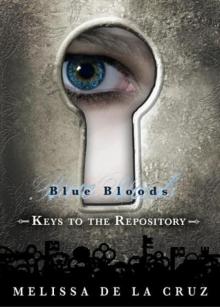 Keys to the Repository
Keys to the Repository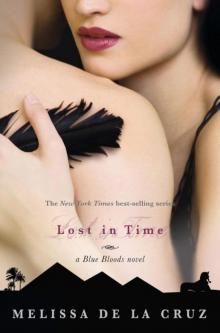 Lost In Time (Blue Bloods Novel)
Lost In Time (Blue Bloods Novel) Stolen
Stolen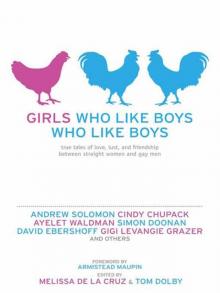 Girls Who Like Boys Who Like Boys
Girls Who Like Boys Who Like Boys the au pairs crazy hot
the au pairs crazy hot Blue Bloods bb-1
Blue Bloods bb-1 Witches 101
Witches 101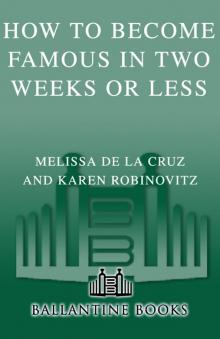 How to Become Famous in Two Weeks or Less
How to Become Famous in Two Weeks or Less Frozen hod-1
Frozen hod-1 Jealous? (The Ashleys, Book 2)
Jealous? (The Ashleys, Book 2) Misguided Angel (Blue Bloods)
Misguided Angel (Blue Bloods) Winds of Salem: A Witches of East End Novel
Winds of Salem: A Witches of East End Novel The Gates of Paradise
The Gates of Paradise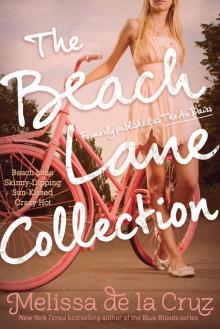 Beach Lane Collection
Beach Lane Collection Wolf Pact, The Complete Saga
Wolf Pact, The Complete Saga Gates of Paradise, The (Blue Bloods Novel)
Gates of Paradise, The (Blue Bloods Novel)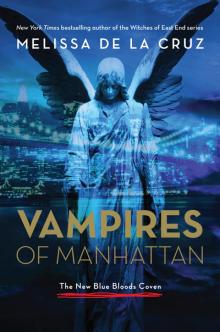 Vampires of Manhattan
Vampires of Manhattan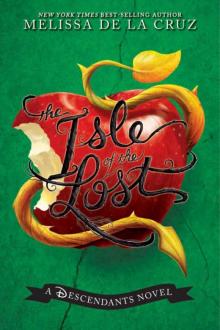 Isle of the Lost
Isle of the Lost Love & War_An Alex & Eliza Story
Love & War_An Alex & Eliza Story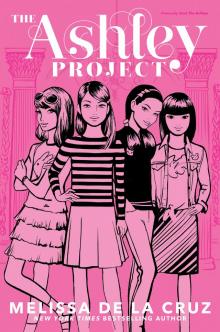 The Ashley Project
The Ashley Project Love & War--An Alex & Eliza Story
Love & War--An Alex & Eliza Story